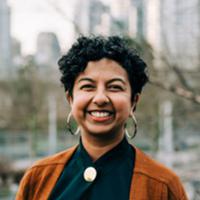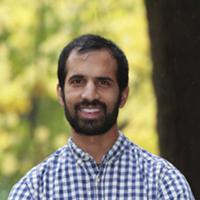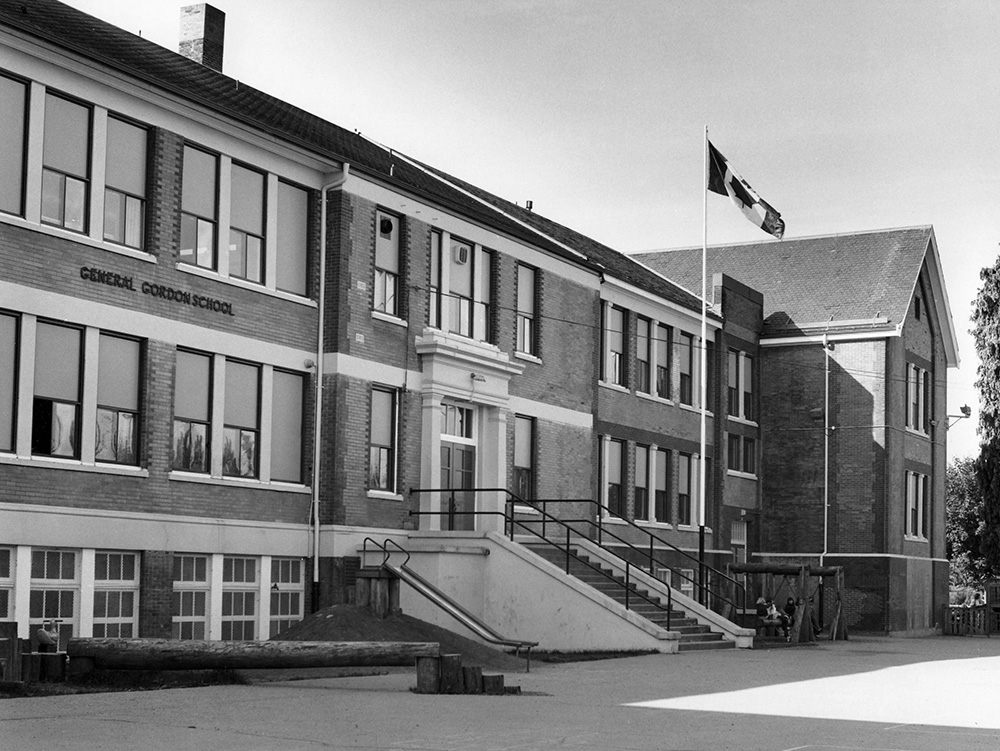He was the head of the Hudson’s Bay Company, responsible for ensuring rapid settler migration into British Columbia and displacing Indigenous communities across the region. He was a general in the British army who made his name suppressing revolution in the Sudan during British colonization. She was the Empress Consort to India, responsible for oversight of the British colonial empire.
What Sir James Douglas, General Charles Gordon and Queen Alexandra all have in common is that their names are above the heads of our children in Vancouver when they enter school each morning.
Place names mean something: they signify belonging (or exclusion). And when it comes to schools, names can impact how children, families and educators feel about the spaces where they learn. As MP Don Davies recently noted in urging a new name for Gladstone Secondary, now is the time to start looking at the community we want to live in.
Vancouver School Board trustees have the power to “rename a school when the name is not in service of the needs of the school population.” (The board’s renaming policy is currently under review.) Recent community leadership has highlighted the need for curriculum on the lives of Black people and people of African descent in B.C., both past and present. We can take this further and consider who we uphold as experts in math, science, art, music and other subjects and change the fact that Black, Indigenous and other racialized experts are rarely a part of our core curriculum.
In the same way, we can expand school names to focus on other inspiring leaders of which there is no shortage.
For parents, the individuals we name our schools for should be those we want our children to emulate. We want our children to see their names and have pride in what they stand for, so that students feel a sense of community in their school and can grow up to be leaders and leave a similar legacy.
Unfortunately, because of decisions made decades ago, we haven’t provided our children with role models that represent the values that we currently hope for and haven’t made space for the perspectives of the diverse communities that live in the region.
School names are just the beginning. Streets, cities and entire provinces should be thinking carefully about the legacies of the individuals that we have chosen to cherish through our naming choices.
But schools hold a particularly special place, since our children spend the bulk of their days in them learning about the world. So, why are we honouring people who participated in Indigenous land theft, colonialism and genocide in our school names? Does this reflect our values as parents and stewards? Without actively trying to change these names, we are telling our children that it’s OK that reconciliation is not happening and that it’s good to continue to live off of the spoils of colonialism.
In the Vancouver district, four elementary schools are named after Indigenous leaders, the same number as those named after British admirals from the 18th or 19th century. The number of names that reflect Black communities is one (James Douglas, of Sir James Douglas Elementary School, was biracial). The number of names that reflect South Asian, East Asian or other communities is zero.* Without diversifying, we alienate many of our children, telling them that they will always be outsiders because their history is not reflected in school names.
This is not to say that our British past is not to be remembered. Canada is an ex-colony and acknowledging that fact is important. However, the Vancouver we live in now is much more than an ex-British colony, with so many histories and communities to celebrate.
Name changing is a process. It requires consultation, careful deliberation and engagement with our past. It requires ensuring that the community is heard, and histories are reconciled with the present. Removing names from schools is not erasing history; placing those names on land that is not theirs, and teaching our children history through a specific lens, is.
We should not ignore the dark periods of our past, but we should not expect our children to carry those histories every moment of their school life without any formal contemplation of alternative histories. This work is our responsibility, particularly at this moment, and this work is part of the process of teaching our children anti-racism. We are at a pivotal moment in history. The decisions we make about whose stories get told are important and tell our children so much about where we live and what we revere.
Here’s to a new generation of school names that tell a new story, one where the students of the province see themselves, their stories and their lives reflected back at them.
*Story corrected on July 7, 2020 at 9:41 p.m. to reflect that Sir James Douglas was biracial. Thanks to a Tyee reader for noticing the error. ![]()
Read more: Politics


















Tyee Commenting Guidelines
Comments that violate guidelines risk being deleted, and violations may result in a temporary or permanent user ban. Maintain the spirit of good conversation to stay in the discussion.
*Please note The Tyee is not a forum for spreading misinformation about COVID-19, denying its existence or minimizing its risk to public health.
Do:
Do not: